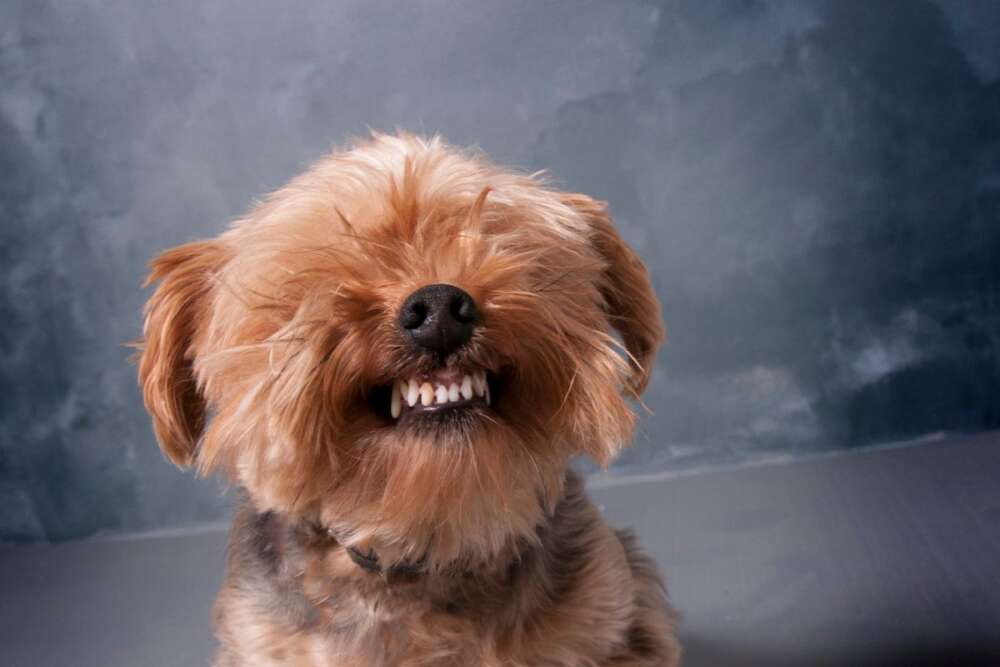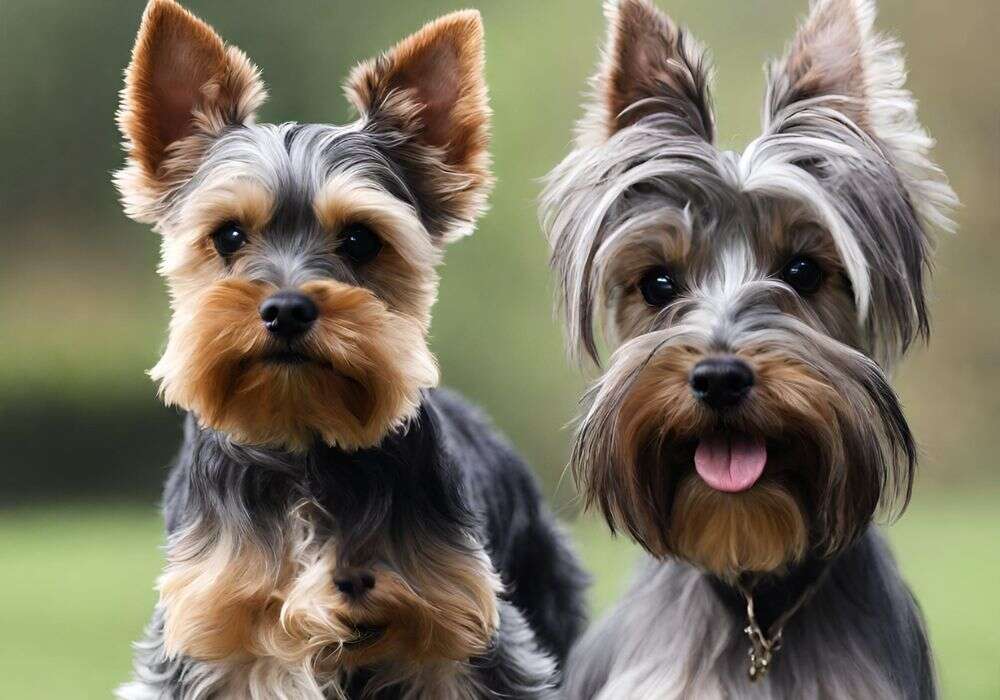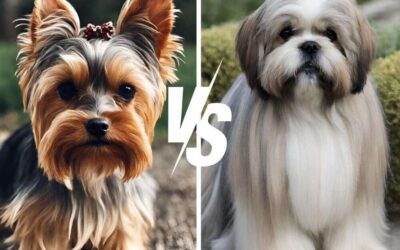Introduction
The Yorkshire Terrier and the Miniature Schnauzer are two popular small dog breeds that are often compared to each other. Both breeds are known for their friendly personalities, intelligence, and trainability. However, there are also some key differences between the two breeds, such as their size, coat, and grooming needs.
Key Differences
| Aspect | Yorkie | Miniature Schnauzer |
|---|---|---|
| Size | ||
| Life Span | ||
| Temperament | ||
| Coat | ||
| Exercise Needs | ||
| Grooming Needs | ||
| Training Difficulty | ||
| Sociability | ||
| Health Issues | ||
| Best for |
Yorkie vs Miniature Schnauzer: Breed Overview
Yorkshire Terrier: The Yorkshire Terrier is a small, active breed of dog that is known for its long, silky coat. They are typically friendly and affectionate, but can also be feisty and protective.
Miniature Schnauzer: The Miniature Schnauzer is a small, sturdy breed of dog that is known for its wiry coat and distinctive beard. They are typically intelligent and playful, but can also be stubborn and territorial.
Both the Yorkshire Terrier and the Miniature Schnauzer are good family dogs, but they may not be the best choice for families with young children. Both breeds are known to be yappy, and they can be aggressive if they are not properly socialized.
If you are considering either of these breeds, it is important to do your research and make sure that you are prepared for the challenges that come with owning a small dog.
Yorkie vs Miniature Schnauzer: Size
Yorkies are typically between 8 and 10 inches tall at the shoulder, while Miniature Schnauzers are typically between 12 and 14 inches tall. Both breeds are considered to be small dogs, but the Yorkie is slightly smaller than the Miniature Schnauzer.
In terms of weight, Yorkies typically weigh between 4 and 7 pounds, while Miniature Schnauzers typically weigh between 10 and 20 pounds. Again, the Yorkie is the slightly smaller of the two breeds.
Both the Yorkie and the Miniature Schnauzer are considered to be lap dogs, and they both enjoy being close to their owners. However, the Yorkie is more likely to be carried around in a purse or bag, while the Miniature Schnauzer is more likely to be walked on a leash.
Ultimately, the best way to decide which breed is right for you is to meet both of them in person and see which one you feel a connection with.
Yorkie vs Miniature Schnauzer: Coat
Both the Yorkshire Terrier and the Miniature Schnauzer have double coats. The Yorkie’s coat is long and silky, while the Miniature Schnauzer’s coat is wiry and coarse. Both breeds require regular grooming to keep their coats healthy and looking their best.
The Yorkie’s coat is more prone to matting than the Miniature Schnauzer’s coat. This is because the Yorkie’s coat is longer and has a tendency to tangle. Regular brushing and combing is essential to prevent matting.
The Miniature Schnauzer’s coat is easier to groom than the Yorkie’s coat. This is because the Miniature Schnauzer’s coat is shorter and less prone to matting. However, the Miniature Schnauzer’s coat does require regular brushing and combing to remove dirt and debris.
Both the Yorkshire Terrier and the Miniature Schnauzer shed seasonally. The Yorkie sheds more heavily than the Miniature Schnauzer. During shedding season, it is important to brush your dog’s coat regularly to remove loose hair.
Yorkie vs Miniature Schnauzer: Temperament
Both the Yorkshire Terrier and the Miniature Schnauzer are known for their feisty and playful personalities. However, there are some key differences in their temperaments that you should be aware of before deciding which breed is right for you.
The Yorkshire Terrier is a more outgoing and friendly breed, while the Miniature Schnauzer can be more reserved and protective of its family. The Yorkie is also more likely to bark at strangers, while the Miniature Schnauzer is more likely to growl or snap.
Ultimately, the best way to determine which breed is right for you is to meet both of them in person and see which one you have the best connection with.
Yorkie vs Miniature Schnauzer: Grooming
Both the Yorkie and the Miniature Schnauzer are relatively low-maintenance breeds when it comes to grooming. However, there are a few key differences between the two breeds in terms of their grooming needs.
Yorkies have a long, silky coat that requires regular brushing to prevent matting and tangles. They should also be bathed every few weeks and have their nails trimmed regularly.
Miniature Schnauzers have a wiry coat that does not require as much brushing as a Yorkie’s coat. However, they still need to be bathed regularly and have their nails trimmed.
Overall, both the Yorkie and the Miniature Schnauzer are relatively easy to groom. However, the Yorkie’s long coat does require more maintenance than the Miniature Schnauzer’s wiry coat.
Yorkie vs Miniature Schnauzer: Health
Both the Yorkie and the Miniature Schnauzer are generally healthy breeds, but there are some health conditions that they are both prone to.
Some of the most common health problems that affect both breeds include:
- Allergies
- Dental problems
- Eye problems
- Hip dysplasia
- Heart disease
It is important to be aware of these potential health problems so that you can take steps to prevent or manage them.
Here are some tips for keeping your Yorkie or Miniature Schnauzer healthy:
- Feed a healthy diet
- Provide plenty of exercise
- Take your dog to the vet for regular checkups
- Avoid exposure to allergens
- Brush your dog’s teeth regularly
By following these tips, you can help your Yorkie or Miniature Schnauzer live a long and healthy life.
Yorkie vs Miniature Schnauzer: Training
Both the Yorkie and the Miniature Schnauzer are intelligent breeds that are easy to train. However, they do have different training needs.
Yorkies are known for being stubborn and independent, so they can be challenging to train. However, they are also very loyal and eager to please their owners, so with patience and consistency, you can train a Yorkie to do anything you want.
Yorkies respond best to positive reinforcement training, such as treats and praise. They also do well with short, frequent training sessions.
Miniature Schnauzers are also intelligent and eager to please, but they are typically easier to train than Yorkies. They are less stubborn and more responsive to commands.
Miniature Schnauzers respond well to both positive reinforcement and negative reinforcement training. They do well with both short and long training sessions.
Overall, both the Yorkie and the Miniature Schnauzer are good choices for first-time dog owners. They are both intelligent and eager to please, and with proper training, they can be well-behaved pets.</p
Cost
The cost of owning a Yorkie or Miniature Schnauzer will vary depending on a number of factors, including the breeder, the location, and the age of the dog. However, you can expect to pay anywhere from $500 to $1,500 for a puppy from a reputable breeder.
The cost of food, grooming, and veterinary care will also add to the overall cost of owning a Yorkie or Miniature Schnauzer. Food costs will vary depending on the type of food you feed your dog, but you can expect to spend around $20-$30 per month on food.
Grooming costs will vary depending on the frequency of grooming, but you can expect to spend around $50-$100 per year on grooming. Veterinary care costs will vary depending on the type of care your dog needs, but you can expect to spend around $500-$1,000 per year on veterinary care.
Overall, the cost of owning a Yorkie or Miniature Schnauzer is relatively affordable. However, it is important to be aware of the potential costs before bringing a dog into your home.
Further Reading:
- https://www.akc.org/dog-breeds/miniature-schnauzer/
- https://www.akc.org/dog-breeds/yorkshire-terrier/
FAQ
What are the primary differences in size and build between the Yorkie and the Miniature Schnauzer?
Answer: The Yorkshire Terrier, commonly known as the Yorkie, is a petite breed weighing typically between 4 and 7 pounds with a height ranging from 8 to 10 inches at the shoulder. These lap dogs often have a delicate, small build. On the other hand, the Miniature Schnauzer exhibits a small to medium build, weighing between 10 and 20 pounds and standing between 12 and 14 inches tall. Unlike the purse-friendly Yorkie, Miniature Schnauzers are sturdier and are often seen confidently trotting on a leash rather than being carried around.
How do grooming requirements vary between a Yorkshire Terrier’s silky coat and a Miniature Schnauzer’s wiry coat?
Answer: The coat of the Yorkshire Terrier is long, silky, and prone to matting. It requires regular brushing and combing to keep it tangle-free and healthy. Moreover, their luxurious, flowing coat often needs trimming, especially if it gets too lengthy. In contrast, the Miniature Schnauzer boasts a distinct wiry coat complemented by a characteristic beard. This coat type is less prone to matting than the Yorkie’s but still needs regular brushing and combing to remove dirt and debris. The Miniature Schnauzer also benefits from hand-stripping to maintain the coat’s texture and regular trims to keep it neat.
Are there distinct temperament traits to consider when choosing between a Yorkie and a Miniature Schnauzer for a family pet?
Answer: Both breeds are known for their lively and playful personalities, but there are nuances in their temperaments. Yorkshire Terriers are typically outgoing, friendly, and can be feisty and protective. They’re confident and can occasionally bark at strangers. Miniature Schnauzers, on the other hand, have a temperament that’s alert, intelligent, and can be a tad more reserved. They can be protective of their family, which might manifest as wariness around strangers or even a growl. It’s crucial to note that early socialization is essential for both breeds to ensure well-rounded and adaptable behavior, especially around new people and situations.

As a lifelong dog lover, I fell in love with Yorkies for their spunky personalities, intelligence, and unwavering loyalty.
As a dedicated Yorkie owner, I have spent years learning about the breed and how to provide the best possible care for them. From finding the proper diet to exercise, and so much more! I take every aspect of my Yorkie’s life seriously.
In addition to being a loving dog parent, I’m an avid blogger, sharing my experiences and insights on all things Yorkie-related. From training tips to grooming advice, Yorkieclothing.com is a go-to resource for other Yorkie owners worldwide.




